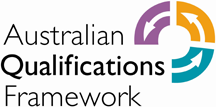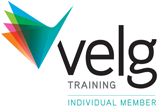In today’s fast-paced world, technical skills and expertise alone aren’t enough to succeed at work. Employers realise that emotional intelligence (EI) is key to creating a positive work environment, fostering effective collaboration, and driving overall organisational success. Let’s take a look at why emotional intelligence is such an invaluable asset for both you and your organisation.
What is emotional intelligence?
Emotional intelligence is the ability to recognise, understand, and manage our own emotions, as well as to recognise, understand, and empathise with the emotions of others. It involves being aware of our emotions and how they impact our thoughts, behaviours, and interactions with others.
What skills make up emotional intelligence?
Self awareness
Emotional intelligence starts with self-awareness. When employees have a high level of self-awareness, they understand their own emotions, strengths, weaknesses, and how those affect others. This self-awareness helps them regulate their emotions, stay composed in challenging situations, and make better decisions. By recognising their emotional triggers, they can manage stress more efficiently, leading to improved well-being and job satisfaction.
Communication
Clear and empathetic communication is crucial in creating a harmonious workplace. Emotional intelligence allows us to understand and interpret the emotions of others, helping them to communicate better and build stronger relationships. By actively listening, paying attention to non-verbal cues, and responding with empathy, emotionally intelligent individuals create an inclusive and supportive work environment. Effective communication reduces misunderstandings and conflicts, and promotes cooperation among team members, resulting in enhanced productivity and teamwork.
Leadership
Emotional intelligence is a key trait for effective leaders. Leaders with high EI are more likely to inspire and motivate their teams because they understand and respond to their employees’ emotional needs. By showing empathy, they create a safe space for open dialogue, constructive feedback, and personal growth. Emotionally intelligent leaders are skilled at managing conflicts and resolving issues in a balanced way, which nurtures a culture of trust and respect within the organisation.
Collaboration and Teamwork
Successful teamwork relies on trust, effective communication, and mutual respect. Emotionally intelligent individuals excel at forming and maintaining positive relationships with their colleagues. They value diverse perspectives, resolve conflicts, and find common ground. This leads to higher levels of trust, improved collaboration, and a stronger sense of unity among team members. Ultimately, this results in higher productivity and innovation.
Conflict Resolution
Of course, conflicts are bound to happen in any workplace. But emotionally intelligent individuals are great at managing and resolving conflicts constructively. They remain calm and composed during tense situations, defusing potential conflicts and finding mutually beneficial solutions. Their ability to see conflicts from multiple perspectives helps bridge gaps, build consensus, and promote harmonious relationships, creating a more productive and supportive work environment.
Adaptability and Resilience
In today’s dynamic business landscape, being able to adapt to change and bounce back from setbacks is crucial. Emotionally intelligent individuals are more resilient because they can manage stress, stay focused, and maintain a positive outlook during challenging times. Their flexibility and adaptability allow them to embrace change, learn from failures, and find creative solutions to problems. This resilience not only benefits you as an individual, but also helps your organisation navigate uncertainty and thrive in ever-changing markets.
Why is emotional intelligence important in the workplace?
Emotional intelligence has become a critical skill set for success in the modern workplace. By cultivating self-awareness, effective communication, strong leadership, teamwork, conflict resolution, and adaptability, you and your organisation can enjoy the benefits of a more positive and productive work environment. As businesses continue to recognise the power of emotional intelligence, investing in developing and nurturing these skills will undoubtedly lead to happier employees, stronger teams, and long-term success.
Emotional intelligence gives you the superpower you need to be more effective in the workplace and unlock both your and your team’s full potential.
If you are ready to unlock your superpower, Develop and Use Emotional Intelligence is a micro credential available to at the Australian Qualifications Institute, an RTO specialising in Business and leadership, offers micro-credentials in these areas. Build your skills using micro-credentials and, if you choose, build those skills to a Nationally Recognised Diploma. Get in touch with Australian Qualifications Institute at enquiries@aqi.edu.au for personalised counselling in broadening your framework of recognised skills with micro-credentials.


